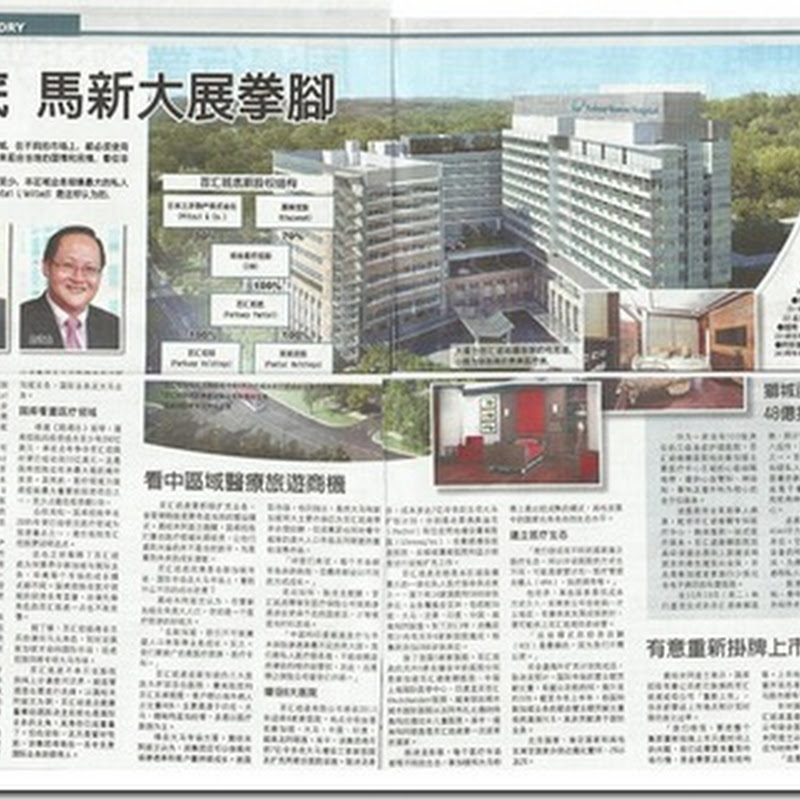It is not ruling out the possibility of expanding its plantation operation by acquiring additional land in neighbouring countries using funds from its private placement exercise.
While the main reason for the private placement exercise is to repay its borrowing, they are still open to the idea of expanding our plantation division. Besides, there are plenty of growth opportunities for palm mill construction in these markets.
Better known as a palm oil mill contractor, the company debts were still at a manageable level.
The company has proposed to undertake a private placement exercise that is expected to raise gross proceeds of about RM40 million. The fund-raising exercise is expected to be completed by the second quarter of next year (2010).
As at the end of its second quarter on June 30, 2009 (2QFY09), CBIP had net debt of RM139.6 million or a net gearing of 62%. Utilising all the proceeds to repay debts will reduce net gearing to about 44%.
CBIP’s targets would naturally be plantation land and assets in either Kalimantan or Papua New Guinea (PNG), where the company has existing operations.
Greenfield plantation landbank in Kalimantan is estimated to cost between RM300 and RM500 per hectare (ha), while those in PNG will cost around RM3,000 and RM4,000 per ha. Assuming CBIP purchases 5,000ha of land in PNG, total cost of acquisition would be around RM20 million, based on the price of RM4,000 per ha.
The relatively small amount of funds that are expected to be raised could put a strain on any plan to expand via acquisition.
On the company’s venture into central America, while there was potential for growth in the plantation industry in that region, operations were hampered by low yield due to poorer soil quality and lack of management skills. Modipalm Engineering Sdn Bhd, a CBIP subsidiary, has entered into a contract with Nacional Agro Industrial SA of Guatemala for the supply of equipment and engineering for a palm oil mill worth US$4.48 million (RM15.2 million).
CBIP currently has around 14,500ha of mature plantation land. However, the group is still banking on its state-of-the-art Modipalm oil mills as a key revenue generator.
Modipalm uses the continuous sterilisation system that could boost palm oil extraction rate by 24%, besides lower maintenance and manpower costs. There were still many planters out there, in particular, smaller players in the industry which were still unaware of Modipalm mills advantages.
The turnaround seen in its plantation associate to a profit of RM700,000 in the latest quarter ended Sept 30, 2009 (3QFY09) from a loss of RM5.3 million in 2QFY09 was likely to continue into next year, with the recovering crude palm oil prices.
Going forward, CBIP milling business is expected to be the company’s main growth catalyst. It has secured palm oil mill engineering and construction contracts worth about RM300 million that could last the company for at least a year, and it is bidding for another RM200 million worth of contracts.
Currently, CBIP has the capacity to build around 15 palm oil mills annually. Each palm oil mill takes between 15 and 18 months to complete.
Some of the major plantation companies using CBIP’s Modipalm mills are Felda, Sime Darby, Tradewinds Plantations and TH Plantations Bhd, while overseas clients include Sinar Mas and Salim Group’s Indofood Agri Resources from Indonesia.
荒谬的GDP!
-
若一个国家以一年财政收入为基础來借贷,它可能是佔收入的30%至50%。例如美国2024年收入是4,9万亿美元,再借1,8万亿美元。那是入不敷出,赤字高达36%。但它们就以GDP
29.2万亿美元为基础,那只是6%。
以上只是一个比例,其实全世界政府都这样做。
大家想一想,若一个家庭五口,有二人工作。以GDP...
21 hours ago





















































No comments:
Post a Comment